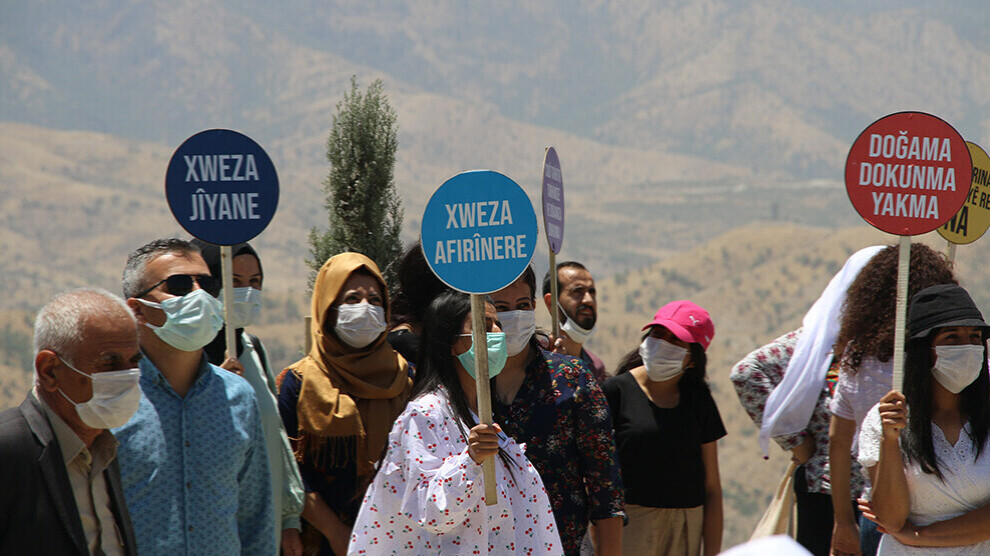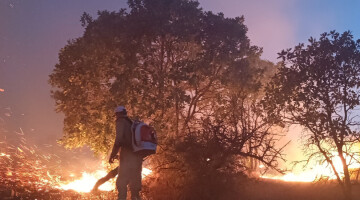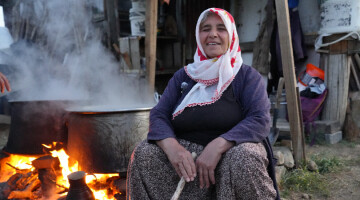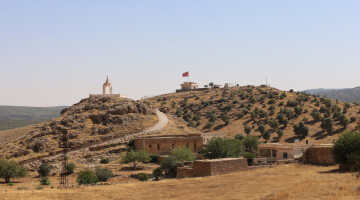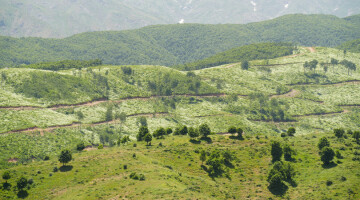Mesopotamia is facing an apocalypse, warned the ecology movement of Mesopotamia, exactly one year ago and called for participation in a reforestation campaign in an urgent appeal. "Wars over nation states in the region where the global capitalist system wields power are turning into conflicts over territories and natural resources," the movement stated at the time, drawing attention to the environmental destruction in capitalist modernity and its effects in the Middle East, especially in Kurdistan.
With the campaign "A Tree for Life", the ecology movement has since encouraged the Kurdish population to counteract the destruction of their environment collectively and in solidarity. The reforestation campaign aims to create new native forests or transform monocultures into species-rich mixed stands. In this way, the project makes an important contribution against forest dieback and the ecological destruction of Kurdistan, but also of Turkey, and for a better climate. Besides creating new livelihoods for humans, animals and plants, reforestation binds CO2 and makes an important contribution to CO2 compensation.
Like last year, the project of the Mesopotamian Ecology Movement started again in 2023 on 1 April. However, there is one difference; this year's reforestation campaign, in which the association Komeleya Ekolojiyê, based in Amed (tr. Diyarbakır), is significantly involved, takes place in memory of the victims of the devastating series of earthquakes in the Turkish-Syrian border region about two months ago, the epicentre of which was in Kurdistan. The slogan is: "Tu jî darekê biçîne, jiyanê şîn bike" - plant a tree and make life blossom.
As the movement explained, the project period runs until 10 April. "Our appeal is not only directed at the population. We are also appealing to environmental associations, civil society organisations and other groups to participate in the reforestation of our land. We are confronted with the system's attempt to destroy life in its entirety through a policy of deforestation," the organisation said and pointed to a systematic ecocide that the Turkish state is carrying out all over the country, but especially in the Kurdish regions, where the regime has been destroying the environment for decades.
Whether it is arson in forests and villages, irrational dam projects or the exploitation of natural resources as a means of political coercion: from its foundation until today, the Republic of Turkey has not stopped at any measure to be "successful" in the "fight against insurgency". In addition to the massive destruction of forests, most of which were destroyed during the hot phase of the war in Kurdistan along with a systematic policy of expulsion, thousands of trees have had to make way for the expansion of military infrastructure in recent years. "Our habitats and forests are being clear-cut for the security of a systematic evil that feeds on war and profit. The wheel of destruction is constantly in motion. But just as forests are being encroached upon - and now all over the country - so too are cities, rural areas and farmlands."
A state practice has been established that allows governments to act like corporations that determine nature and thus the homes of millions, said the Mesopotamian Ecology Movement and added. "This is an attempt to erase our collective memory. Through hierarchical decisions this side of the environmental reality created by corporations and states, the ugly face of capitalism permeates all aspects of life. The series of earthquakes on 6 February is a prime example of how capitalist greed for profit and lack of control disregard human life and how an entire system allows this to happen. Social murder was perpetrated on tens of thousands of people and animals who died avoidable deaths trapped under the rubble. Instead of earthquake safety, the corrupt rulers have taken up the interests of the profit-hungry construction lobby. And even now, with the reconstruction measures hastily announced by the government, which can be neither democratic nor ecological, and certainly not social, we realise: the enemy is not the earthquake."

